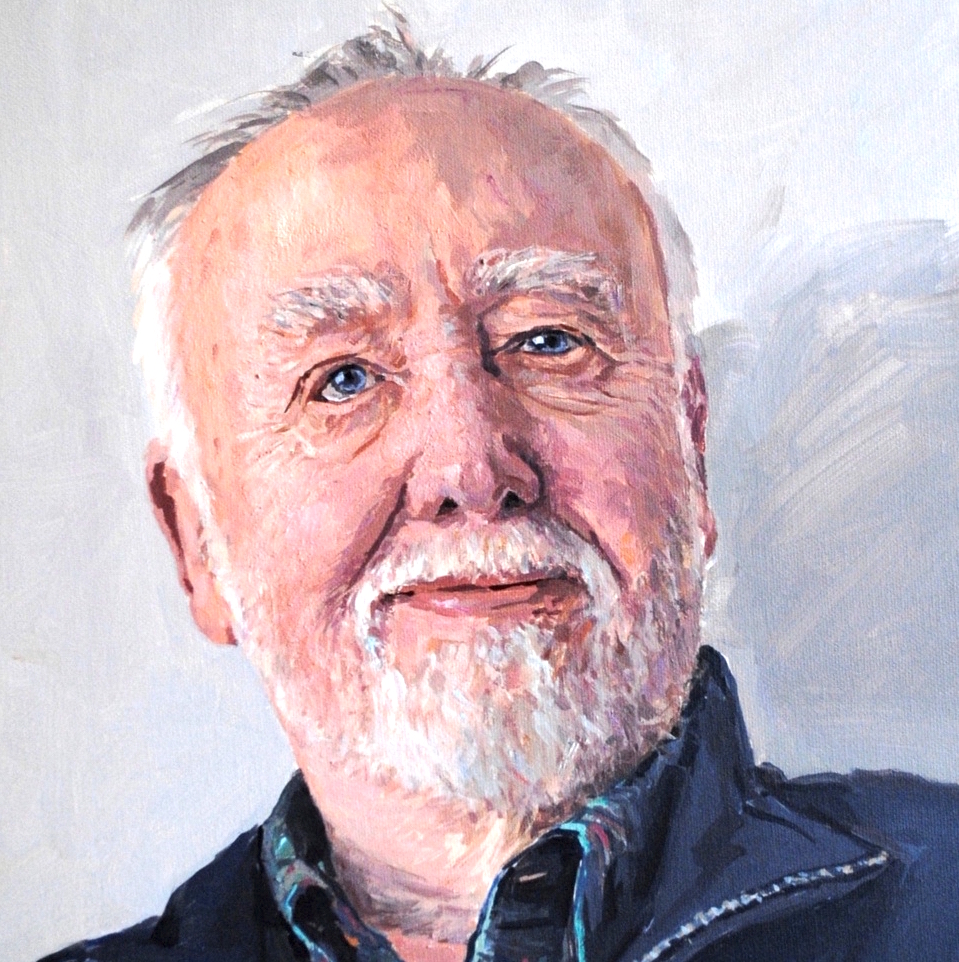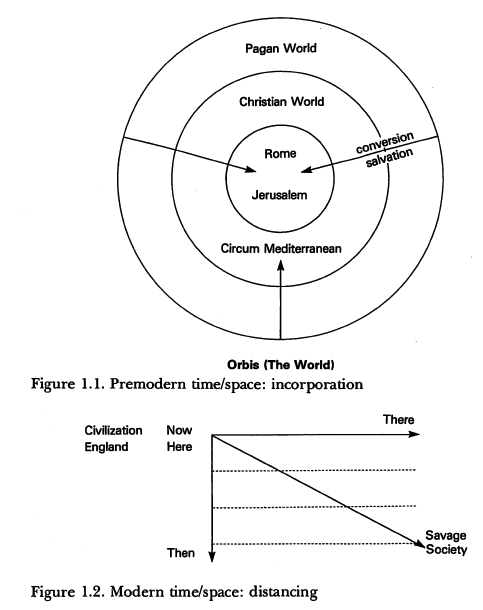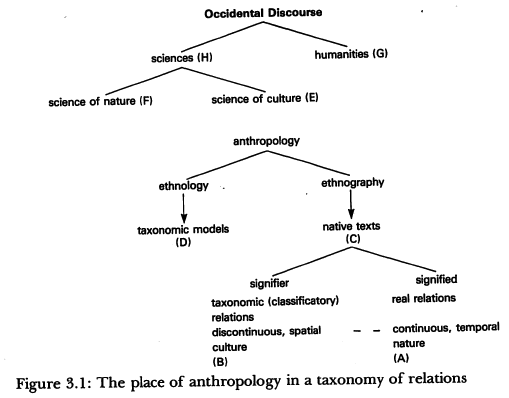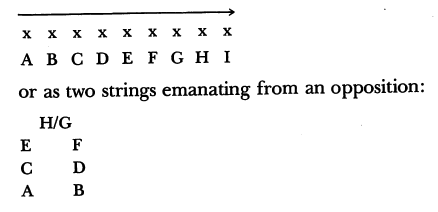
ヨハネス・ファビアン
Johannes Fabian, b.1937
☆ヨハネス・ファビアンは1937年5月19日にグロガウ(ポーランド)で生まれ、現在はアムステルダム大学の人類学教授である。1956年にボンに移り、 その後オーストリアにある聖ガブリエル・ミッションズハウスで研究を続けた。そこで人類学を学んだ後、ミュンヘンとシカゴ大学で学ぶ。研究分野はザイール とコンゴの宗教運動である。ファビアンは批評的な傾向の本を何冊か書いたが、彼の最も有名な著作は『時間と他者』(1983年)で、人類学者の「対象」に 対する考え方を変えた現代民族誌の古典である。この本の宣伝文句にも書かれているように、これは民族誌的記述に対するラディカルな認識論的批判であり、 『時間と他者』は、人類学者がその「対象」を説明するために使用する「ここ」と「そこ」に関連して同一視する「今ここ」の概念に対する批判であり、「他 者」が私たち自身の現代の時間に存在するという事実に対する必要な認識への誘いである。
| Johannes Fabian
nasce il 19 Maggio 1937 a Glogau (Polonia) ed è attualmente professore
di antropologia all’università di Amsterdam. Nel 1956 Fabian si muove a
Bonn e per continuare i suoi studi si sposterà poi in Austria alla
Missionshaus St. Gabriel. Studiò qui antropologia e successivamente a
Monaco e all’università di Chicago. Il suo campo di ricerca si
concentra sui movimenti religiosi di Zaire e Congo. Fabian scrive vari
libri di taglio critico ma il suo lavoro più famoso è “Time and the
Other” (1983), un classico dell’etnografia contemporanea che ha
cambiato il modo degli antropologi di prendere in considerazione “il
loro oggetto”. Come scritto sulla stessa fustella del libro, questo è
una radicale critica epistemologica della scrittura etnografica e Il
tempo e l’Altro è una critica alla nozione del qui ed ora con i quali
gli antropologi si identificano in rapporto al “qui” e “la” utilizzato
per la descrizione del loro “oggetto”, l’invito ad una necessaria presa
di coscienza del fatto che “l’Altro” esiste nel nostro stesso tempo
contemporaneo. Andrea Gianfanti https://www.thepaperlab.it/2019/06/01/johannes-fabian/ |
ヨ
ハネス・ファビアンは1937年5月19日にグロガウ(ポーランド)で生まれ、現在はアムステルダム大学の人類学教授である。1956年にボンに移り、そ
の後オーストリアにある聖ガブリエル・ミッションズハウスで研究を続けた。そこで人類学を学んだ後、ミュンヘンとシカゴ大学で学ぶ。研究分野はザイールと
コンゴの宗教運動である。ファビアンは批評的な傾向の本を何冊か書いたが、彼の最も有名な著作は『時間と他者』(1983年)で、人類学者の「対象」に対
する考え方を変えた現代民族誌の古典である。この本の宣伝文句にも書かれているように、これは民族誌的記述に対するラディカルな認識論的批判であり、『時
間と他者』は、人類学者がその「対象」を説明するために使用する「ここ」と「そこ」に関連して同一視する「今ここ」の概念に対する批判であり、「他者」が
私たち自身の現代の時間に存在するという事実に対する必要な認識への誘いである。 アンドレア・ジャンファンティ |
| Johannes Fabian
(born 19 May 1937)[1] is an emeritus professor of Anthropology at the
University of Amsterdam. His ethnographic and historical research
focuses on religious movements, language, work, and popular culture in
the Shaba mining region of Zaire (present-day Democratic Republic of
the Congo). His theoretical and critical work addresses questions of
epistemology and history in anthropology, notably the influential book
Time and the Other (1983), which has become a classic in the field of
anthropology.[2] Johannes Fabian was born in the German town of Glogau (which is now in Poland).[3] He began his university studies in Bonn in 1956, and then moved on St. Gabriel Mission House in Mödling, Austria to study theology. His experiences in Austria led him to study anthropology in Munich, before undertaking a master's degree (1965) and PhD (1969) at the University of Chicago. After receiving his PhD, he took up appointments at a series of universities: in 1968 at Northwestern University in Evanston, Illinois; in 1973 at the University of Zaire; in 1974 at Wesleyan University in Middletown, Connecticut; and finally moved to the University of Amsterdam in 1980, where he was a professor and chair of the department of cultural anthropology until his retirement in 2002. During this time he had visiting appointments in Bonn, Cologne, and Paris. His ethnographic research focuses on religious movements in Zaire and Congo. Fabian is most famous for his book Time and the Other: How Anthropology Makes its Object (1983), a classic in the field of anthropology that had changed the way that anthropologists think about their relationship with the people they study and is an important work of postcolonial critique within anthropology. As the blurbs on the book put it, the book is "a radical epistemological critique of anthropological writing" (George Marcus, University of California, Irvine) and "Time and the Other is a critique of the notions that anthropologists are 'here and now,' their objects of study are 'there and then,' and that the 'other' exists in a time not contemporary with our own." His 1996 work, Remembering the Present: Paintings and popular history in Zaire was made in collaboration with the Congolese artist Tshibumba Kanda-Matulu. |
ヨハネス・ファビアン(1937年
5月19日生まれ)[1]は、アムステルダム大学の人類学名誉教授である。ザイール(現在のコンゴ民主共和国)のシャバ鉱山地域における宗教運動、言語、
労働、大衆文化に焦点を当てた民族誌的・歴史的研究を行う。彼の理論的・批評的著作は、人類学における認識論と歴史学の問題を扱っており、特に『時間と他
者』(1983年)は人類学の分野で古典的名著となっている[2]。 ヨハネス・ファビアンはドイツのグロガウ(現在はポーランド)という町で生まれた[3]。1956年にボンで大学での勉強を始め、神学を学ぶためにオース トリアのメードリングにある聖ガブリエル・ミッションハウスに移った。オーストリアでの経験から、ミュンヘンで人類学を学んだ後、シカゴ大学で修士号 (1965年)と博士号(1969年)を取得した。博士号取得後、1968年にイリノイ州エバンストンのノースウェスタン大学、1973年にザイール大 学、1974年にコネチカット州ミドルタウンのウェズリアン大学、そして1980年にアムステルダム大学に移り、2002年に定年退職するまで教授および 文化人類学部長を務めた。その間、ボン、ケルン、パリで客員教授を務めた。 ザイールとコンゴの宗教運動に焦点を当てた民族誌的研究を行なっている。フェビアンは著書『時間と他者』で最も有名である: この本は、人類学者が研究対象である人々との関係について考える方法を変え、人類学におけるポストコロニアル批評の重要な作品となった。この本の宣伝文句 にあるように、この本は「人類学的記述に対する急進的な認識論的批判」(カリフォルニア大学アーバイン校のジョージ・マーカス)であり、「時間と他者」 は、人類学者は「今ここにいる」存在であり、研究対象は「その時そこにいる」存在であり、「他者」は我々と同時代ではない時間に存在するという概念に対す る批判である。彼の1996年の著作『現在を記憶する: ザイールにおける絵画と民衆の歴史』は、コンゴのアーティスト、ツシブンバ・カンダ=マトゥルとの共同制作である。 |
| !Kung bushman kinship : Componential analysis and alternative interpretations (1965) Genres in an emerging tradition: An anthropological approach to religious communication (1974) Scratching the surface: Observations on the poetics of lexical borrowing in Shaba Swahili (1982) Swahili on the road: Notes on language in two nineteenth century travelogues (1983) Time and the Other: How anthropology makes its object (1983) Power and performance: Ethnographic explorations through proverbial wisdom and theater in Shaba, Zaire (1990) Remembering the Present: Painting and Popular History in Zaire (1996) Memory against culture: Arguments and Reminders (2007) Ethnography as commentary: writing from the virtual archive (2008) |
クン・ブッシュマンの親族関係:コンポネンシャル分析と代替解釈 (1965) 新たな伝統におけるジャンル: 宗教コミュニケーションへの人類学的アプローチ(1974年) 表面を擦る: シャバ・スワヒリ語における語彙借用の詩学に関する考察 (1982) 旅のスワヒリ語: 19世紀の2つの旅行記における言語についてのノート (1983) 時間と他者: 人類学はいかにその対象を作るか(1983年) パワーとパフォーマティビティ: ザイールのシャバにおけることわざの知恵と演劇による民族誌的探求(1990年) 現在を記憶する: ザイールにおける絵画と民衆の歴史(1996年) 文化に対する記憶: 議論と想起(2007年) 解説としてのエスノグラフィー:ヴァーチャル・アーカイヴからの執筆(2008年) |
| https://en.wikipedia.org/wiki/Johannes_Fabian |
|
| Johannes Fabian (* 19. Mai 1937 in Glogau) ist ein deutscher Anthropologe. Er ist emeritierter Professor an der Universiteit van Amsterdam. Leben Johannes Fabian wurde 1937 in Glogau geboren. Nach dem Schulabschluss im Jahr 1956 begann Fabian ein Studium in Mödling und in Bonn. Dort studierte er, unter anderem bei Paul Schebesta, Philosophie, Theologie, Anthropologie, Linguistik und Geschichte. 1962 zog Fabian nach München und studierte dort an der Ludwig-Maximilians-Universität München Anthropologie, Soziologie und Frühe Geschichte. Schon 1963 führte er sein Studium der Anthropologie an der University of Chicago fort, wo er 1965 seinen Master abschloss und 1969 promovierte. Bereits ab 1968 hielt er Vorlesungen an der Northwestern University in Evanston, Illinois, wo er in der Folge an der Fakultät für Anthropologie eine Assistenzstelle annahm[1]. 1973 wurde er Professor an der Universität Zaire und wurde Präsident der Fakultät für Anthropologie und Soziologie. Er kehrte jedoch ein Jahr später in die Vereinigten Staaten zurück und wurde Professor für Anthropologie an der Wesleyan University in Middletown, Connecticut bis 1979. Im Folgejahr wurde er Professor und Inhaber des Lehrstuhl des Lehrbereichs Kulturanthropologie und Nicht-Westliche Soziologie der Universiteit van Amsterdam. Im Jahr 2002 wurde er emeritiert[2]. Fabian war Gastprofessor an der Rheinischen Friedrich-Wilhelms-Universität Bonn, der Universität zu Köln und der Universität von Paris. Außerdem war er im Frühling 1995 Inhaber der Theodor-Heuss-Gastprofessur an der New School for Social Research in New York City[3]. Forschung In seiner Karriere führte Fabian verschiedene Feldstudien durch, zum Beispiel zu religiösen Bewegungen in Zaire und Kongo. Außerdem hat er unterschiedliche Studien zu ethno-linguistischen Sachverhalten durchgeführt. Schriften (Auswahl) Time and the Other: How Anthropology Makes its Object. New York: Columbia University Press 1983, ISBN 978-0231055901. Neuausgabe: Time and the Other. How Anthropology Makes Its Object, With a New Postscript by the Author. Columbia University Press, New York 2014, ISBN 978-0231169271. Language and Colonial Power: The Appropriation of Swahili in the Former Belgian Congo, 1880–1938, Cambridge University Press 1986, ISBN 978-0521308700. Time and the Work of Anthropology: Critical Essays 1971-1991. Chur: Harwood Academic Publishers 1991, ISBN 978-3718651795. Out of Our Minds. Reason and Madness in the Exploration of Central Africa. University of California Press, Berkeley und Los Angeles 2000, ISBN 978-0520221239. Im Tropenfieber: Wissenschaft und Wahn in der Erforschung Zentralafrikas. Übersetzt von Martin Pfeiffer, Beck, München 2001, ISBN 978-3406473975. Anthropology with an Attitude: Critical Essays. Stanford University Press, Stanford 2002, ISBN 978-0804741439. Memory against Culture: Arguments and Reminders. Duke University Press, Durham und London 2007, ISBN 978-0822340775. Ethnography as Commentary: Writing from the Virtual Archive. Duke University Press, Durham und London 2008, ISBN 978-0822342830. https://de.wikipedia.org/wiki/Johannes_Fabian |
ヨハネス・ファビアン(1937年5月19日、グローガウ生まれ)はドイツの人類学者である。アムステルダム大学名誉教授。 生い立ち ヨハネス・ファビアンは1937年グローガウに生まれた。1956年に学校を卒業後、メードリングとボンで学び始める。そこで哲学、神学、人類学、言語 学、歴史学をパウル・シェベスタらに師事した。1962年にミュンヘンに移り、ルートヴィヒ・マクシミリアン大学で人類学、社会学、初期史を学んだ。 1963年にはシカゴ大学で人類学の研究を続け、1965年に修士号、1969年に博士号を取得した。1968年からはイリノイ州エバンストンのノースウェスタン大学で教鞭をとり、その後人類学部の助手を務める[1]。 1973年にはザイール大学の教授となり、人類学・社会学部の学長となった。翌年、アムステルダム大学の文化人類学・非西洋社会学部の教授兼学科長に就任した。2002年に名誉教授となった[2]。 ライン・フリードリヒ・ヴィルヘルムス大学(ボン)、ケルン大学、パリ大学の客員教授を務めた。1995年春には、ニューヨークのニュースクール社会研究所のテオドール・ホイス客員教授も務めた[3]。 研究 そのキャリアの中で、ファビアンはザイールやコンゴにおける宗教運動など、さまざまな現地調査を行ってきた。また、民族言語問題についてもさまざまな研究を行っている。 著作(抜粋) Time and the Other: How Anthropology Makes its Object. New York: Columbia University Press 1983, ISBN 978-0231055901. 新版:時間と他者。How Anthropology Makes Its Object, With a New Postscript by the Author. Columbia University Press, New York 2014, ISBN 978-0231169271. Language and Colonial Power: The Appropriation of Swahili in the Former Belgian Congo, 1880-1938, Cambridge University Press 1986, ISBN 978-0521308700. Time and the Work of Anthropology: Critical Essays 1971-1991, Chur: Harwood Academic Publishers 1991, ISBN 978-3718651795. Out of Our Minds. Reason and Madness in the Exploration of Central Africa. University of California Press, Berkeley and Los Angeles 2000, ISBN 978-0520221239. Tropical Fever: Science and Madness in the Exploration of Central Africa. Martin Pfeiffer訳、Beck, Munich 2001年、ISBN 978-3406473975。 Anthropology with an Attitude: Critical Essays. Stanford University Press, Stanford 2002, ISBN 978-0804741439. Memory against Culture: Arguments and Reminders. Duke University Press, Durham and London 2007, ISBN 978-0822340775. 解説としてのエスノグラフィー:ヴァーチャル・アーカイヴから書く。Duke University Press, Durham and London 2008, ISBN 978-0822342830. |
 |
|
 |
|
 |
|
| Time and the Other: How anthropology makes its object (1983)[pdf] Preface and Acknowledgments Chapter 1: Time and the Emerging Other From Sacred to Secular Time: The Philosophical Traveler 2 From History to Evolution: The Naturalization of Time 11 Some Uses of Time in Anthropological Discourse 21 Taking Stock: Anthropological Discourse and the Denial of Coevalness 25 Chapter 2: Our Time, Their Time, No Time: Coevalness Denied Circumventing Coevalness: Cultural Relativity 38 Preempting Coevalness: Cultural Taxonomy 52 Chapter 3: Time and Writing About the Other Contradiction: Real or Apparent 72 Temporalization: Means or End? 74 Time and Tense: The Ethnographic Present 80 In My Time: Ethnography and the Autobiographic Past 87 Politics of Time: The Temporal Wolf in Taxonomic Sheep's Clothing 97 Chapter 4: The Other and the Eye: Time and the Rhetoric of Vision Method and Vision 106 Space and Memory: Topoi of Discourse 109 Logic as Arrangement: Knowledge Visible 114 Vide et Impera: The Other as Object 118 "The Symbol Belongs to the Orient": Symbolic Anthropology in Hegel's Aesthetic 123 The Other as I con: The Case of "Symbolic Anthropology" 131 Chapter 5: Conclusions 143 Retrospect and Summary 144 Issues for Debate 152 Coevalness: Points of Departure Notes References Cited Index |
ヨハンネス・ファビアン『時間と他者:人類学はどのようして対象を形成するか』1983 序文と謝辞 第1章 時間と出現する他者 聖なる時間から世俗の時間へ:哲学の旅人 2 歴史から進化へ: 時間の自然化 11 人類学的言説における時間の使い方 21 時間を把握する: 人類学的言説と共存性の否定 25 第2章 われわれの時間、彼らの時間、ない時間:否定される共同性 共同性を回避する: 文化的相対性 38 共同性を先取りする: 文化分類学 52 第3章 時間と他者について書くこと--矛盾: 現実か見かけか 72 時間化: 手段か目的か?74 時間と時制: エスノグラファーの現在 80 私の時代に:民族誌と自伝的過去 87 時間の政治学:分類学上の羊の皮を被った時間的狼 97 第4章 他者と目 時間と視覚の修辞学 方法と視覚 106 空間と記憶 言説のトポイ 109 アレンジメントとしての論理 目に見える知識 114 ヴィデ・エ・インペラ 対象としての他者 118 「象徴は東洋に属する」: ヘーゲルの美学における象徴人類学 123 私としての他者 象徴人類学」の場合 131 第5章 結論 143 回顧とまとめ 144 議論の課題 152 同時代性: 出発点 備考 引用文献 索引 |
リ ンク
文 献
そ の他の情報
Copyleft,
CC, Mitzub'ixi Quq Chi'j, 1996-2099